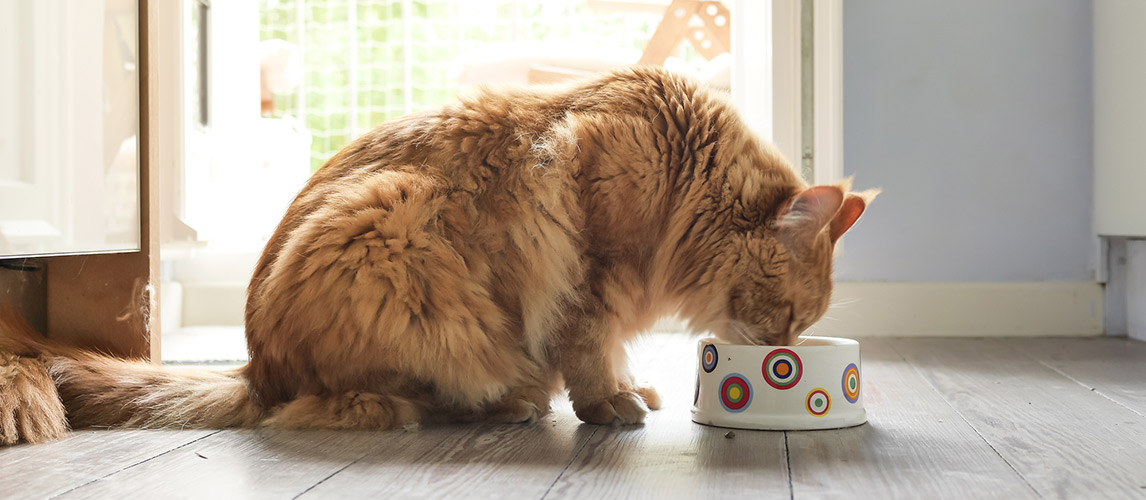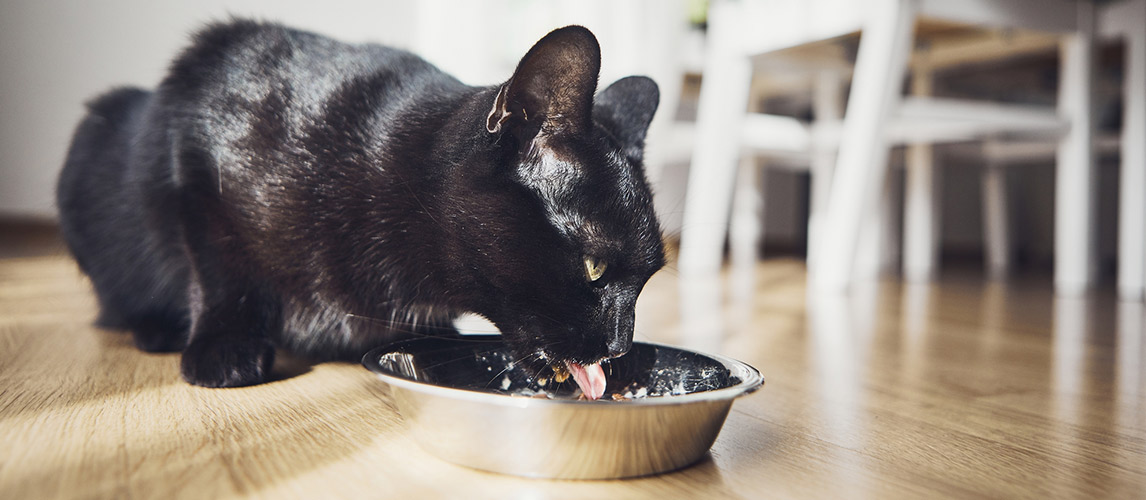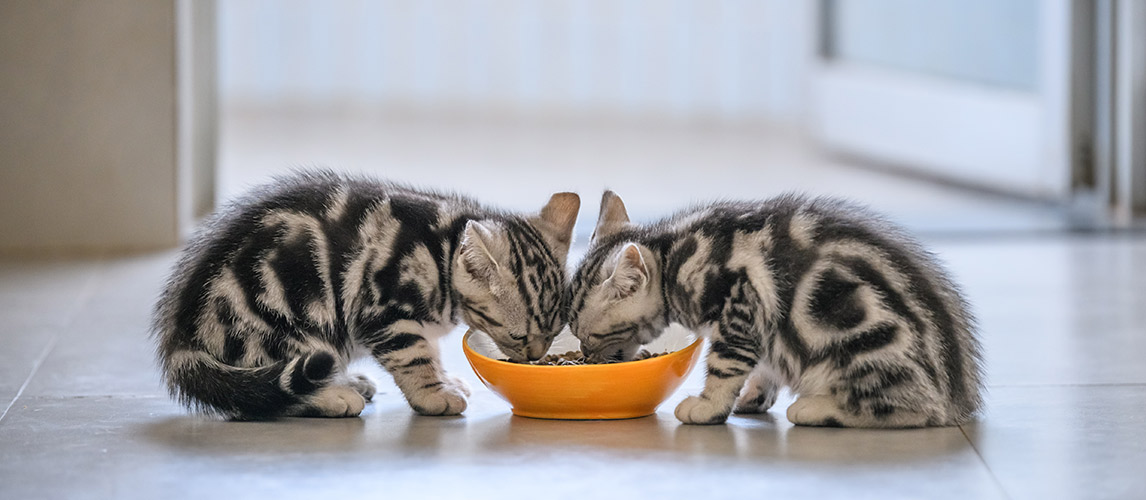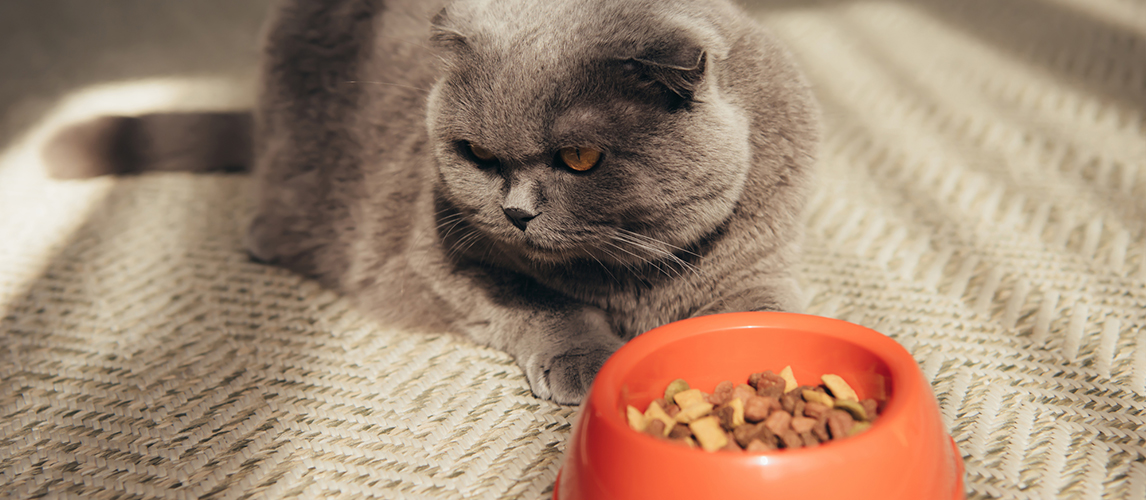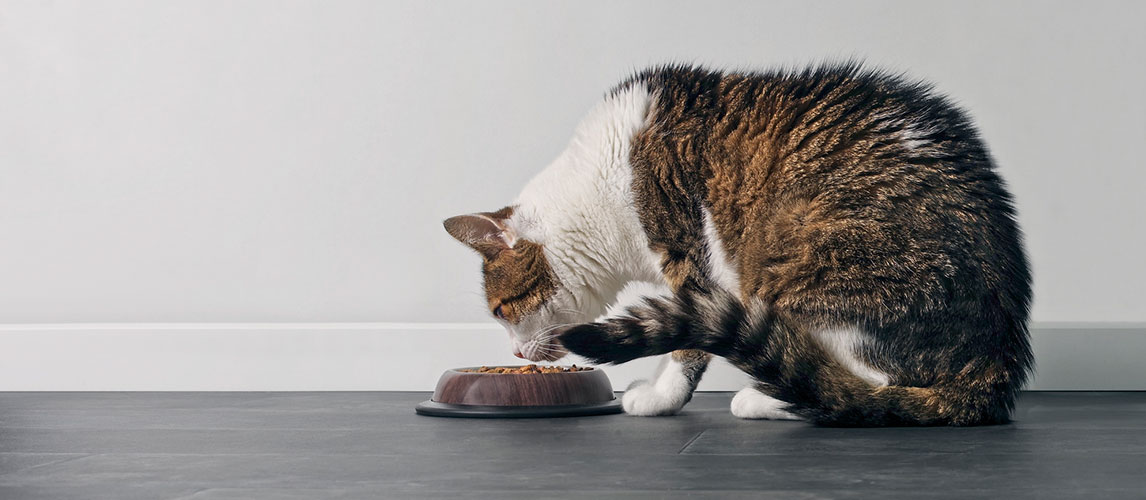Keeping a balanced and healthy diet can be really tricky. We’ve all sacrificed quality for quantity or budget at some point in our lives. After all, just because we know that artificial food is bad for us, doesn’t mean we are going to give it up cold turkey! But what about your cat? How can you give them healthy, unprocessed foods?
Unfortunately, it isn’t as easy as simply reading the tin. Often companies rely on buzzwords to convince you to buy their cat food, so it can be helpful to understand what the terms ‘natural’ and ‘organic’ legally mean, and what the difference is between them.
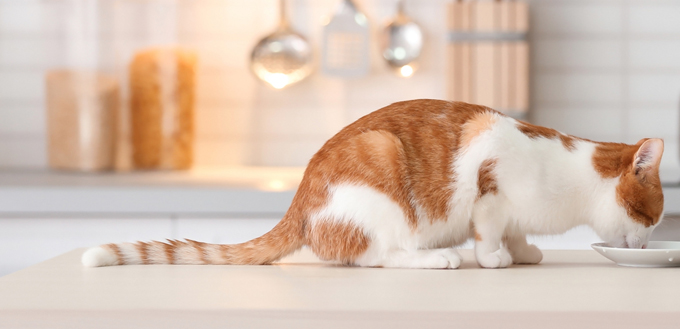
Natural Cat Food
Natural food is food that has not been processed by synthetic chemicals, and has not had additives or processing aids added to the recipe. The American Association of Feed Control Officials (AAFCO) sets this standard, but allows a very small amount of these synthetic chemicals and additives that may occur as a bi-product of the production of the cat food. If you see the word ‘natural’ on your cat food packaging, this is what you can expect.
However, there are a lot of natural things that aren’t good for your cat if they have too much of it. You could be buying a 100% natural can of gluten and grains, or other fillers, which may not provide your cat with sufficient amounts of protein. Similarly, they could use the cheaper, fattier meats, which are also not a good foundation for any diet. In short, the term ‘natural’ is not a one-stop, easy, fix-all term, and you are still going to need to do some research.
The truth is that most of the premium brands of cat food are natural, whether they actively advertise it or not. It can be quite easy to use natural preservatives, such as Vitamin E or rosemary, and canning food has been used as a means to keep food fresh for just over two centuries.
Similarly, although adding synthetic additives and processing aids would make it illegal to label your cat food ‘natural’, the presence of such additives does not. Put simply, when making cat food, occasionally these additives are created, for lack of a better word, organically, and these small amounts are deemed acceptable. The AAFCO, in fact, recognizes that cats actively need certain synthetic micro ingredients, in very very small amounts, to have a balanced diet.
Related Post: Best Wet Cat Food
Organic Cat Food
The U.S Department of Agriculture (USDA) bases the definition of ‘organic’ predominately on the use of pesticides. When you see the word ‘organic’ used on food packaging, it means that:
- Crops are grown in a field which has not seen pesticides for a minimum of three years
- Livestock is fed on organic crops, as described above
- Livestock has not been given any growth hormones or antibiotics
- Livestock has access to the outdoors.
Like natural food, organic canned food is not automatically the best balance for your cat. You can’t avoid doing that extra bit of research. Additionally, you must be aware that using the ‘organic’ label does not automatically guarantee that you are buying something completely organic. There are four levels of organic food, each with their own official classification:
- Less than 70% organic
- Made with organic
- Organic
- 100% organic
It is worth noting that the official classification of ‘organic’, as used by the USDA, does not require the product to be entirely organic. ‘Organic’ food is used to indicate that a product is a minimum of 95% organic, not necessarily 100%. Similarly, ‘made with organic’ means the product is 70 – 95% organic.
If you want to ensure your pet food is at least 95% organic, you should look for the USDA’s official organic seal. They only put this on food that they have certified as organic or 100% organic.
Related Post: Best Organic Cat Food

Natural vs Organic Cat Food
Now that you understand the difference between natural and organic cat food, you might still be wondering what you should be feeding your cat. After all, let’s not forget that their health and happiness is the most important thing! There are two vital considerations you should make when you are trying to decide what cat food to buy for your cat:
- What do they need in their diet?
- What do they like?
It is easy to forget these two factors when you are trying to make your pets’ diets as ethical and healthy as possible. Cats can’t live off kale, and even if they could, they will probably be miserable if that is all they are given all day, every day. Your cat may also have food allergies, an intolerance, or any other medical conditions that may affect what they need from their diets.
When it comes to the question of natural or organic – the choice is really up to you. Just remember that not everything organic may be 100% organic, and not everything natural is completely free of synthetic chemicals. They might also not be the most balanced meal. Labels can be very misleading, so it is more important that you do your research and find out if the meal provides your kitty with all the nutrients they need. You can try finding a couple of options that you know are good, and then let them decide which one tastes better.
Ultimately, if it is very important to you that your pet has an 100% organic and natural diet, the only certainty you can get is through making all their food yourself. This is a huge task, and not one we would recommend. Beyond the drain on your time and resources, you must do extensive research to make sure that the food you are making provides everything that your cat needs, including the tiny amounts of synthetic micro ingredients, vitamins, and minerals present in store bought cat food that the AAFCO recognizes contributes to a healthy diet. The best thing to do, as always, is to consult your vet and other animal dietary specialists.
You May Also Like: Vitamins for Cats
Sources:
- Patti Munizza, DVM, What Is Organic Cat Food?, PetMD
- Dr. Ann Hohenhaus DVM, DACVIM, Pet Food Labels: What Organic, Natural, & Low-Fat Claims Really Mean, Vetstreet
- Lynn Buzhardt, DVM, What’s in My Cat’s Food?: Designer Diets, Grain Free Diets, VCA Hospitals


